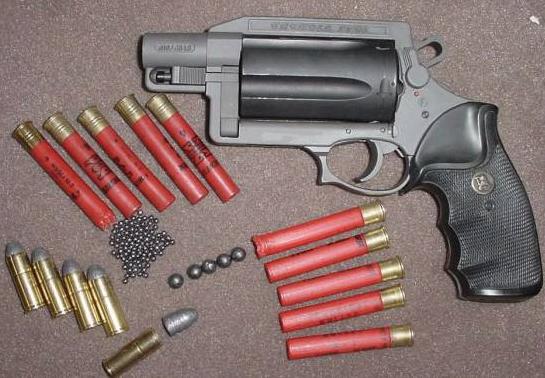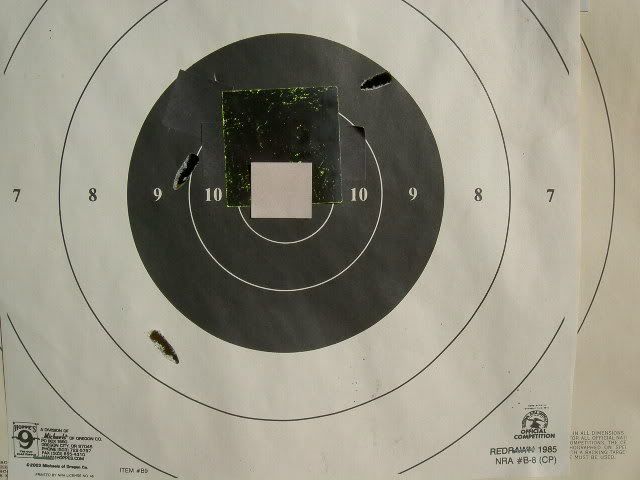

 The Accurate Reloading Forums
The Accurate Reloading Forums  THE ACCURATE RELOADING.COM FORUMS
THE ACCURATE RELOADING.COM FORUMS  Guns, Politics, Gunsmithing & Reloading
Guns, Politics, Gunsmithing & Reloading  Reloading
Reloading  Can you match the bullet to the barrel twist?
Can you match the bullet to the barrel twist?Go  | New  | Find  | Notify  | Tools  | Reply  |  |
| One of Us |
Although many seasoned shooters here on AR have made statements to the effect of "those (specific) guns like heavier bullets", I wondered if there is a way to actually make a calculation to find the ultimate length bullet for a given twist rate. After pouring through some bullet length/weight charts, I noticed that heavier means longer and came across several bullet length charts. So, thinking I'm on the right track, I did a little more digging and found the Greenhill Formula calculation. Now, the Greenhill is a calculation that is the opposite of what I was looking for....starting with the bullet length, resulting in a recommended twist. This is fine for building a custom shooter starting with your bullet choice. But what about those of us who have a fine rifle with a given twist? For me, it begs the question....can I calculate the most accurate length bullet for my twist rate? I know there are other variables that will affect accuracy. I'm just looking for a benchmark from which to start. I'm hoping to get lucky with some factory loads. Life itself is a gift. Live it up if you can. | ||
|
| One of Us |
Most bullet manufacturers mention the minimum rifling twist in a given caliber. | |||
|
| One of Us |
You should be able to juggle the numbers in the Greenhill formula to tell you what you want. You will have most of the knowns. DRSS: E. M. Reilley 500 BPE E. Goldmann in Erfurt, 11.15 X 60R Those who fail to study history are condemned to repeat it | |||
|
One of Us |
Yes, like 9.3x75r said, use algebra to solve for weight. ___________ Cowboy Dan's a major player in the cowboy scene. -The Mouse | |||
|
| one of us |
Yes you can. There is a formula in Hatcher's notebook.. Unfortunately i left my copy in Africa with my PH 2 years ago and haven't replaced it yet so I can't look it up for you, but maybe someone else here has a copy. NRA Benefactor. Life is tough... It's even tougher when you're stupid... John Wayne | |||
|
| one of us |
Switch the variables L(length) & T(twist) in the equation and you will solve for bullet length. | |||
|
| One of Us |
Both twist and throating of the barrel can play a part in the twist preference of a rifle. 7X57 Mausers are kind of famous for preferring the 175 grain round nose bullets due to both twist and throating. If you look far enough you can find a number of plug in calculators that permit you to calculate optimum twist and bullet length given one or the other. Velocity also plays a part.
| |||
|
| One of Us |
Of course; here is the rule; fast twists; heavy (longer) bullets. Slower twists; lighter bullets. Usually/sometimes/maybe. Results vary. Only one way to find out in your specific rifle and caliber. Try them. | |||
|
| One of Us |
Bullet stability/Rifling twists Lack of precision in a given barrel or lot of bullets can defeat any theoretical exercise though. | |||
|
| one of us |
| |||
|
| One of Us |
Yes . . . "In theory, theory and practice are the same. In practice, they are not." — Yogi Berra, former NY Yankee catcher. | |||
|
| one of us |
It really doesn't make that much difference IME. The only time I have seen twist rate problems was in a 223 with a 1 in 14 twist trying to shoot monometal bullets. The 1 in 14 would not stabilize anything heavier than about 40gr or the bullets would keyhole.  The solution was to re-barrel to a faster twist. There are variables that affect accuracy more than twist rate in most rifles. Have gun- Will travel The value of a trophy is computed directly in terms of personal investment in its acquisition. Robert Ruark | |||
|
| One of Us |
Blacktailer I have a 6X47 Rem benchrest rifle with a 14" twist that shoots 70 grain Nosler BTs, Hornady 70 grain spitzers and Hornady 75 flat base HP really well. However Winchester once sold an really pointy 85 gr flat base match bullet that I tried. None of of the 85 grain bullets even printed a profile. They completely missed the target frame. Cast lead bullets seem to be more sensitive to twist issues and it does make a difference with those bullets. A near perfect swaged core has almost no defect so the RPM is not critical if over spun. Cast bullets are not so perfect and high RPMs tend to magnify the defects on the target. | |||
|
| One of Us |
DavidReed has given me exactly what I was looking for, a simple reversal on the Greenhill formula resulting in a good benchmark to start with. Thank you David. I have made a chart for .284 diameter bullets and also used the original Greenhill formula to back check the figures and it has passed the test. See sample below. I have derived much from other posts as well. Thanks to the numerous responses I am again reminded of the kindness and generosity of those who post here. Here's the Greenhill reversal formula. T = Twist in inches-1 rotation. BD = bullet diameter. SBL = Suggested bullet length. 150 / (T / BD) times BD = SBL TWIST SBL 8.5 --- 1.42 9.0 --- 1.34 9.5 --- 1.27 10.0 --- 1.20 10.5 --- 1.15 11.0 --- 1.09 Life itself is a gift. Live it up if you can. | |||
|
| One of Us |
I am sort of trusting main stream manufacturers to match the faster twist rates with the corresponding longer throat. Now that I've convinced myself to go with [QUOTE]Originally posted by SR4759: Both twist and throating of the barrel can play a part in the twist preference of a rifle. 7X57 Mausers are kind of famous for preferring the 175 grain round nose bullets due to both twist and throating. If you look far enough you can find a number of plug in calculators that permit you to calculate optimum twist and bullet length given one or the other. Velocity also plays a part. Life itself is a gift. Live it up if you can. | |||
|
| one of us |
The above target was shot at about 20 yards because any father away and nothing hit paper. Have gun- Will travel The value of a trophy is computed directly in terms of personal investment in its acquisition. Robert Ruark | |||
|
| One of Us |
Gees. Does anyone actually stock 7X57's with premium quality 160 to 175 grain bullets anymore? Life itself is a gift. Live it up if you can. | |||
|
| One of Us |
Got a couple boxes of 156 grain Oryx 7X57's on the way. See what happens. CB Life itself is a gift. Live it up if you can. | |||
|
| one of us |
The Greenhill formula works best with flat base bullets with 1 to 2 caliber length tangent ogives. It is limited. The Miller formula is better but still has limitations with material types, ogive lengths and boat tail lengths. It is better than Greenhill. Best formula to use at the moment is on the JBM Ballistics website but not at the link above which points to the Miller version. Use http://www.jbmballistics.com/cgi-bin/jbmdrag-5.1.cgi It asks for more information but gives accurate results. | |||
|
| One of Us |
Gerard, Interesting post. Thanks. Life itself is a gift. Live it up if you can. | |||
|
| One of Us |
I love that picture!! | |||
|
| Powered by Social Strata |
| Please Wait. Your request is being processed... |
|
 The Accurate Reloading Forums
The Accurate Reloading Forums  THE ACCURATE RELOADING.COM FORUMS
THE ACCURATE RELOADING.COM FORUMS  Guns, Politics, Gunsmithing & Reloading
Guns, Politics, Gunsmithing & Reloading  Reloading
Reloading  Can you match the bullet to the barrel twist?
Can you match the bullet to the barrel twist?

Visit our on-line store for AR Memorabilia

